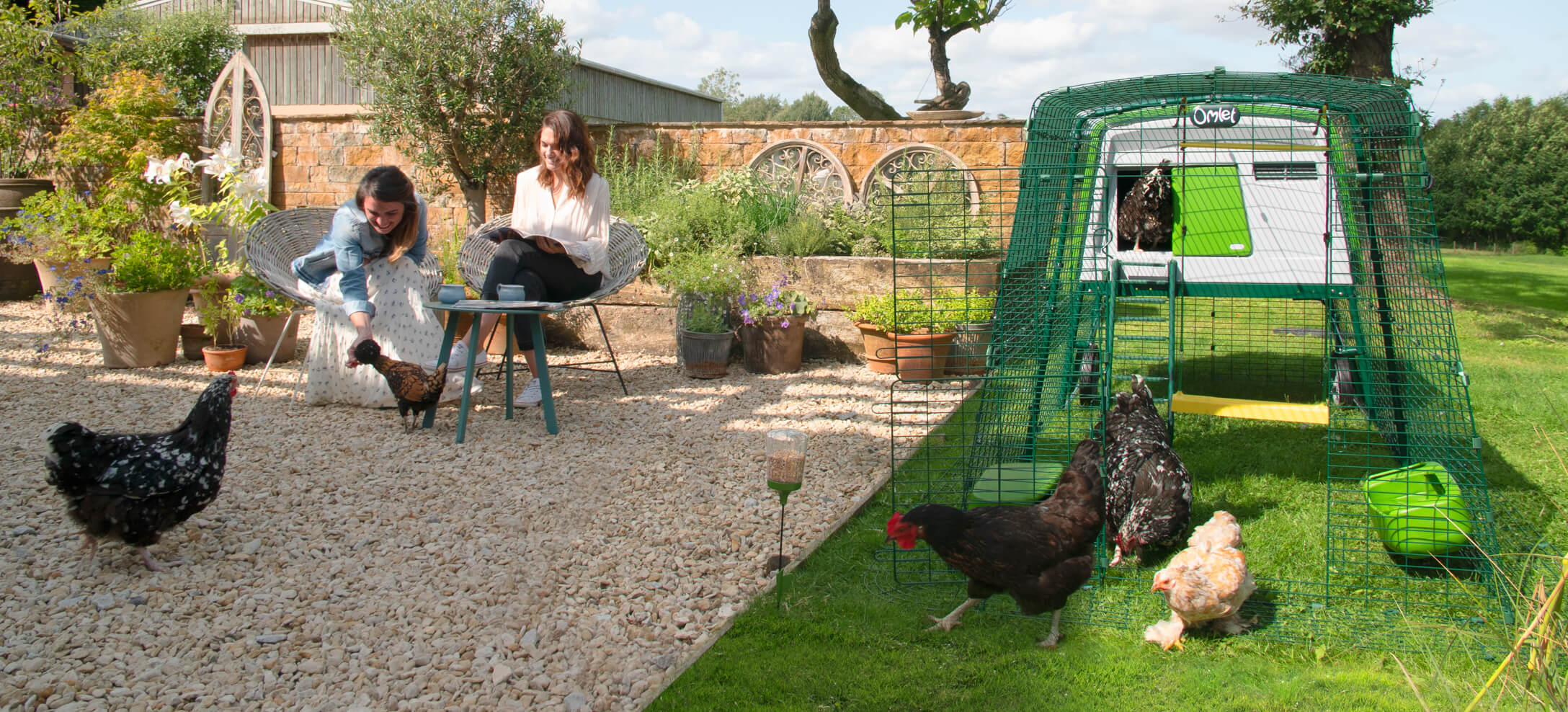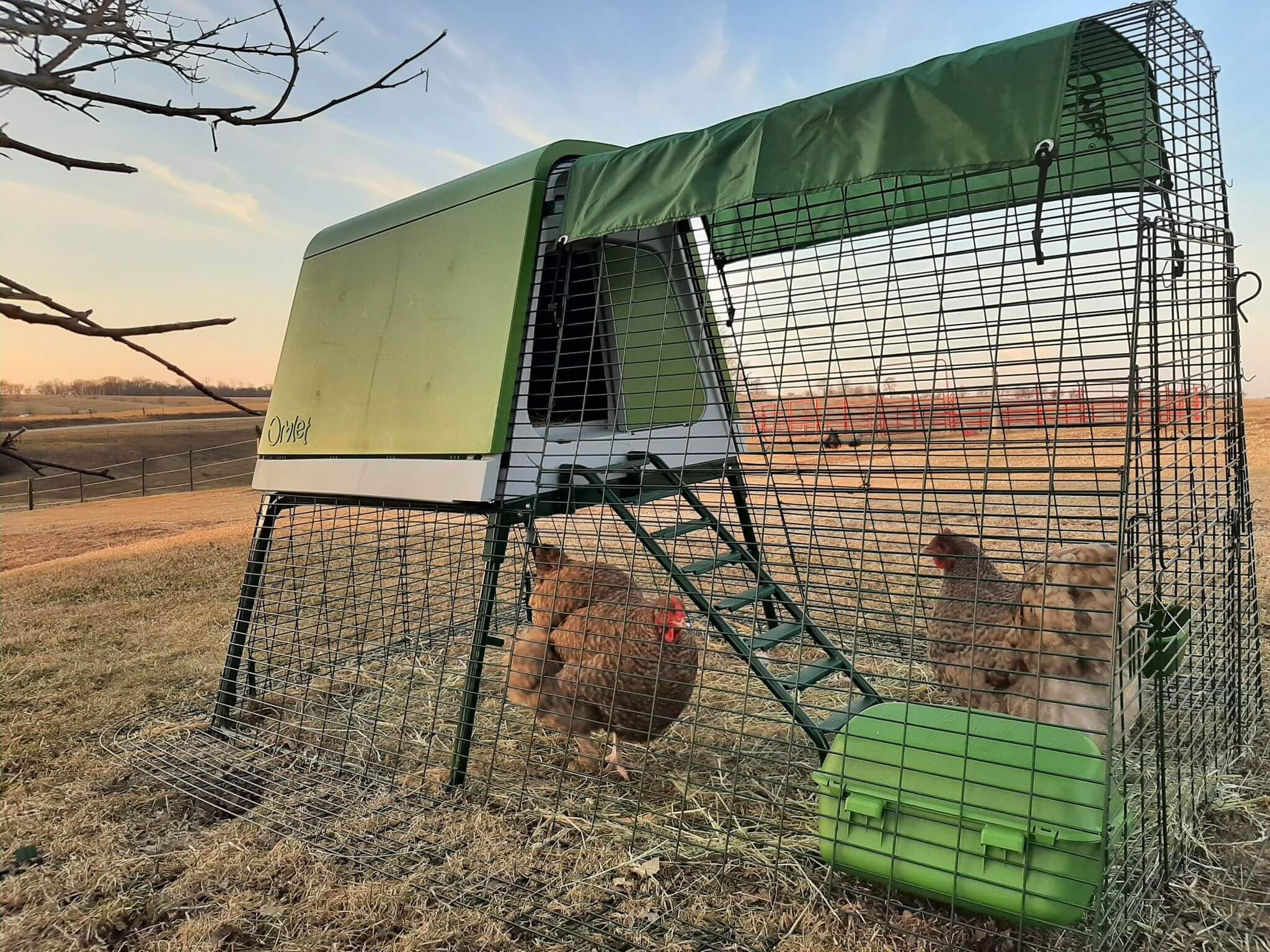Normal Chicken Behaviour (And Not So Normal)
Sometimes chickens behave in a strange way, and it’s not always easy to figure out if it’s normal chicken behaviour or whether something is wrong. Here are some things your flock might get up to, so you can easily figure out what they are actually up to!
My chicken is rolling around in the flower bed
This is completely normal. Chickens don’t wash themselves with water like you and I, but to get rid of dirt and parasites from their
My chicken is losing its feathers
Whether or not to worry depends on how your chicken is losing them. All chickens lose their feathers once a year in a process called moulting, where they shed old feathers and grow new ones in a way to keep the plumage strong and healthy. This can look quite messy, and you might find that hens stop laying while moulting. However, this is completely normal and you don’t necessarily have to intervene in any way.
If you notice that your chicken is losing feathers but is not moulting it could be a sign that something is not right, especially if she has got bald patches on her neck or chest. This could either be that she’s picking her own feathers, or that she is being badly bullied by others in the flock. Both of this could indicate that you chickens are stressed or bored, often due to lack of space and stimulation. Inspect the flock as they interact with each other and see if you can notice any feather pecking.
If you find that the feather loss is indeed self-inflicted or caused by another hen, try to give the flock more space and something to keep them busy. Maybe a larger Walk In Chicken Run with a super fun Chicken Perch?
My chicken won’t leave the nest box
If you’ve got a hen who is refusing to leave the nest box, it’s most likely because she’s gone broody. This happens to hens from time to time (to some breeds more often than others), most likely because a maternal instinct has kicked in and she wants to sit on her eggs until they hatch. To her, it doesn’t matter that they aren’t fertilised and will never result in any chicks – she will stay put regardless.
You will probably struggle to move her from the nest box, but put on some gloves and try to get her out to make sure she gets to move around and have some food and water. A hen will most likely snap out of this state after around 21 days, but there are ways to break the broodiness and prevent it happening again. You can read more about it in this previous blog post about broody hens.
My chickens seem to be bullying another hen
Unfortunately this can also be seen as normal chicken behaviour. Chickens in a flock need to establish a pecking order to decide who is top hen, and this is often decided through some rather unfriendly pecking and flighting.
If you have just introduced some new chickens or if the flock is new, you will likely see some quarrelling for a week or so. As long as no one is getting seriously injured, you’re best off staying out of it. If your hens however have been living together for a while and you still find that the other hens are picking on a specific individual you might have to interfere, as this will be stressful for the whole flock.
It’s always best to separate the main bully. Keep her elsewhere for a few days, and then slowly reintroduce her to the flock. In some cases a rearrangement in the pecking order can solve things.
My chicken is eating its eggs
This is not normal chicken behaviour. It’s not necessarily bad for your chickens’ health if they get into the habit of eating their eggs, but not only is it annoying for you to miss out on delicious eggs, it could also be a sign that something is not right.
The cause of this behaviour could be that your hens are dehydrated or vitamin deficient, or that they are stressed or anxious. It could also be that they feel the nesting box isn’t safe or comfortable enough. The nesting box in the Eglu Cube Large Chicken Coop is a good example of what chickens like when laying. Its’ dark, deep and private, and up to three hens can nest at the same time.
Keep on top of egg collection and keep an eye on your chickens to make sure they are otherwise happy, and they should hopefully snap out of the habit before too long.
My chicken is panting
Chicken have no sweat glands, so like dogs they drive off body heat by panting. This is normal chicken behaviour and just a way for your hens to stay cool, so unless the panting is excessive and you have made sure she has access to shade and plenty of water, it’s not necessarily something to worry about.
That being said, panting can also be a sign of stress or breathing problems, so if it’s not warm outside or your chicken is panting more than you think is normal, you should definitely check for other symptoms, and potentially take her to the vet for a check up.
My chicken has stopped laying
Again, it depends on a few different things, mainly the age of your chicken, the time of year, and your hens’ general health. It’s normal for most chickens to stop laying over the winter, as egg laying is strongly linked to hours of sunlight. They will also stop laying when moulting, or if something has interrupted their routine.
Again it’s useful to take a step back and see how your chickens are doing. Carry out a health check to make sure they are not ill or have parasites, check that they are getting enough good quality feed, and make sure there isn’t anything in or around the coop that is making them stressed or anxious.
It should also be said that hens only have a predefined number of eggs in them, so if your hen is getting older it’s completely normal for her production to slow down and eventually stop. This is particularly common for ex-battery hens who have been laying intensely for the first 18 months of her life. You can read more about why chickens might not lay in this blog post.
We hope that was helpful. If you have any other questions about normal chicken behaviour, comment below and we will follow up with another post! You will also find lots of other Omlet blog posts that go into more detail about the behaviour we’ve mentioned here, so check it out to learn more!
This entry was posted in Chickens

